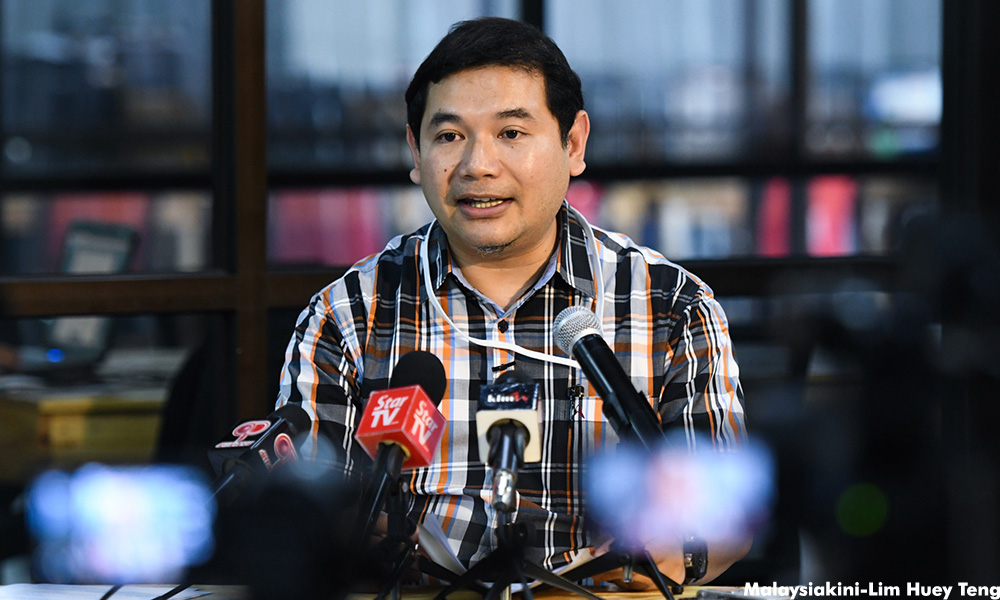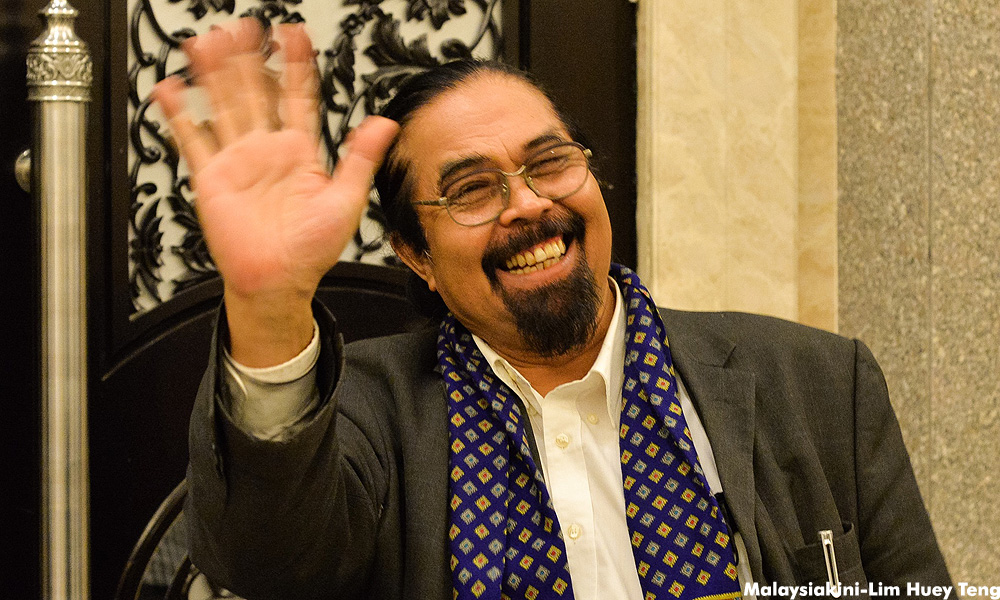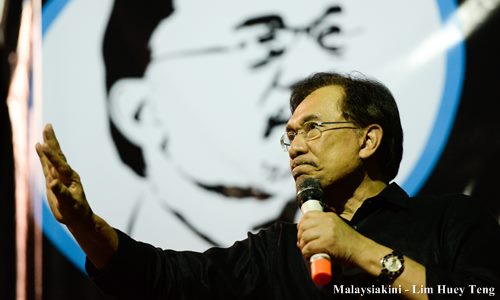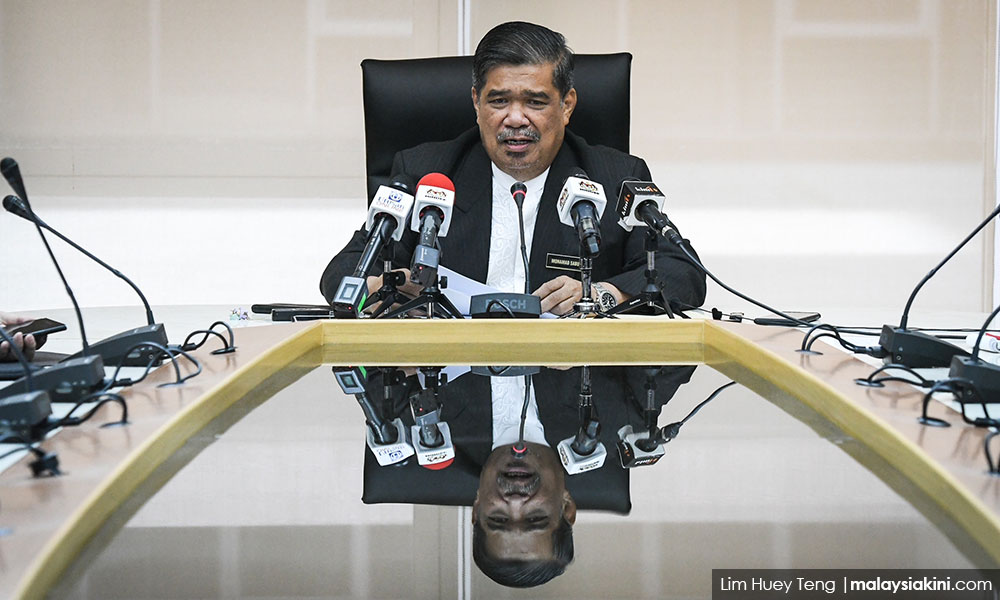
By early October, close to 800,000 members of PKR have to get it right. Do they want Azmin Ali, the economic affairs minister, or former Pandan parliamentarian Rafizi Ramli as their deputy president?
The latter is, of course, the fiery reformer who would have won hands down in the 14th general election on May 9 had he not been weighed down by the pernicious accusation of sedition by the previous administration of Najib Razak.
To prevent his seat from being disqualified, invariably causing PKR to lose one vital parliamentary seat in what was supposed to be an electoral cliff-hanger, not the landslide victory led by Dr Mahathir Mohamad, Rafizi gentlemanly chose not to run for office. It was wise.
Instead, the parliamentary seat of Pandan was swiftly won by Dr Wan Azizah Wan Ibrahim, the deputy prime minister. History has since vindicated her role. She was not only the moral compass of PKR when her husband, former deputy minister Anwar Ibrahim, was under imprisonment but in a sense, the gentle mother of the opposition front before it became a full-fledged government after 20 years of long struggle.
But the numerical threshold of 20 is deceiving too. This is where deeper reflection is needed. To begin with, it lulls PKR members into believing that 1998 was the starting point of Malaysian reforms.
Yet, a more elongated reading of Anwar and other leaders would produce a denser outcome. Australian academic Deborah Johnson would prefer to look at the entire span of Malay and Malaysian intellectual history. And, she is right.
Besides, reformasi, strictly speaking, was not the handiwork of PKR alone. One could perhaps argue that it made a migratory leap from Indonesia, when the student activists in Indonesia, led by Dr Amien Rais - a close friend of Anwar no doubt - began stirring for the end to the Suharto regime. They succeeded. And it inspired a great many Malaysians to seek the same.
Indeed, the likes of Liew Chin Tong, now the deputy defence minister, could swear on his ancestor's tablet that 1998 was the year of his political awakening too. But Chin Tong had nevertheless taken an avid interest in politics well before 1998. And Chin Tong is a strategist of DAP with no ties to Indonesia, let alone Anwar in 1998. Therefore, reformasi is as much "his" political birthright as any other reformers, past, present and future.
Perhaps the likes of Ong Kian Ming, the deputy minister of trade and industry, too had his first inkling of politics in 1998 as well. He was originally a member of Gerakan before switching to DAP to run as a member of parliament of Serdang in 2013, now known as Bangi.
Regardless of how these activists moved vertically or horizontally, across and within party divides, they were inspired by events of 1998, and also before and after.
Anthony Loke, the transport minister, for example, began reading on current affairs, and the importance of transforming Malaysia at the age of nine, which was well before 1998.

Hishamuddin Rais (above), a self-described revolutionary, who remains a revolutionary at heart, had his political awakening even earlier.
Who could deny the value of his fine Malay prose? Each of his articles in Malaysiakini is capable of earning 5,000 or 6,000 shares within a few days. Isn't Hishamuddin now doing what Anwar used to do before 1998? He is transforming minds even as this is written.
It would not have been amiss to say that DAP and many others in PKR, or even Bersatu, had long been stirred by events in 1998, or perhaps even earlier. Any electoral campaign that starts abruptly at 1998 would be akin to what social scientists called "ahistorical".
In other words, one takes history as one datum (that is, a single point) without understanding the flow of the data and the multiple points of entries that make history whole. Rafizi, in this sense, has parachuted into 1998 without acknowledging what made 1998 so special in relation to others.
For instance, if reformasi is vital, why not trace it back to 1988 when Operation Lalang had few hundred academics, journalists, and intellectuals arrested? Even The Star was shut down for half a year.
This is why Professor Sebastian Conrad and Cemil Aydin, two of the finest global historians in their generations, are calling for a more global or complete form of historical awareness.
For example, well before a state became a state, authentic global history has shown that it was but a motley collection of "stationary bandits," as the late Mancur Olson put it.
Some bandits and robber barons became tired of raping and raiding the treasury of other villages, and settled down to creating an administrative apparatus to extract taxes and agricultural yields on a proportionate basis - so that a state coffer could always be full and not diminished. A state would offer protection in exchange for a small tax in return. This logic led to the creation of a state.
But as and when the state violated this logic, and become voracious and violent in demanding the blood and toil of the people, the citizens can either cast their ballot to reject it, or vote with their feet by leaving the state en masse. Either way, history cannot be invoked as and when one wishes.
‘Organic intellectual’
Anwar, however, is what Antonio Gramsci would call an "organic intellectual," someone who is always in touch with the people. A quick elevator approach to the top may not be what he wants.

While Anwar's thought orientation is the people on the ground, one can't just juxtapose him from 1998 onwards. It would not be an accurate rendition of his past legacy.
Thus, regardless of the importance of the PKR campaign, it cannot be ahistorical since Anwar and PKR are creatures of the whole flow of Malaysian history. Why is this the case?
Take Anwar, for instance. Be it 1968 or 1969, the year that marked the outbreak of interracial violence on May 13, Anwar was already a mature intellect and activist. It was this combination that led to his first arrest under the Internal Security Act when he was a student leader in Universiti Malaya.
As a BA major in Malay Studies in 1970, it would have also dawned on Anwar that Malay literature could not be read in isolation from other disciplines. Other scholarships were important too.
Indeed, the entire syllabus of Malay Studies, to this day, covered the whole scope of Islam, social sciences and the seeming power of the West, indeed, the turbulence of the East marked by Vietnam War, Cultural Revolution in China and the Cold War.
The richness of these issues fired up the likes of Anwar to understand the living conditions of the Malays and the average Malaysians: why were they poor in a land of plenty? Why was Asia in constant geopolitical tussle in a form different from that of the Middle East?
At any rate, the events that emerged from May 13, 1969, and the Six Day War in 1967, became the intellectual fodder that led Anwar to form a tuition centre or a small teaching cluster; which later blossomed into Angkatan Belia Islam SeMalaysia (Abim) by early 1970s.
Abim, for the lack of a better expression, would be the historical equivalent to what Chinese reformists in late 19th century called a "self-strengthening movement" (Ji Qiang). Under the rubric of such a movement, the goal was to acquire knowledge to the best extent possible; what the early Chinese Republican reformist Sun Yat Sen called "Mr Science and Mr Democracy".
True enough, the first few classes of Abim involved the teaching of mathematics, or what Harvard University would later call "Quantitative Reasoning" - the skill set to use one's numerical literacy to understand national and global issues.
Keen awareness was what Anwar stood for and what the likes of Mahathir, the late Dr Lim Chong Yew, Professor Syed Hussein Alatas, indeed, Professor Wang Gung Wu, and Professor Syed Husin Ali all tried to do: use scientific methods, and academic cannons, to make Malaysia a first-rate country.
And as and when needed, make them parallel to the ethics of Quran and Sunnah too, but always consistent with the broad parameters of Federal Constitution.

And as events would have it, the Iranian Revolution of 1979 had Anwar, even Mohamad Sabu or Mat Sabu (above), now the defence minister, classified as "Islamic activists."
But neither Anwar and Mat Sabu were what these narrow caricatures tried to purvey. Both of them, together with the likes of PAS leaders, the late Yusuf Rawa and Fadzil A Noor, were trying their level best to make their activism the template of a progressive society, either based on Islam or some sort of combination with democracy.
In the case of Yusuf and Fadzil, one can see that their impact was sufficiently powerful to transform their own children into fellow activists. Thus, Dr Mujahid Rawa and Faiz Fadzil are now key pillars of Amanah.
PHAR KIM BENG was a multiple award-winning Head Teaching Fellow on China and Cultural Revolution in Harvard University. -Mkini



No comments:
Post a Comment
Note: Only a member of this blog may post a comment.